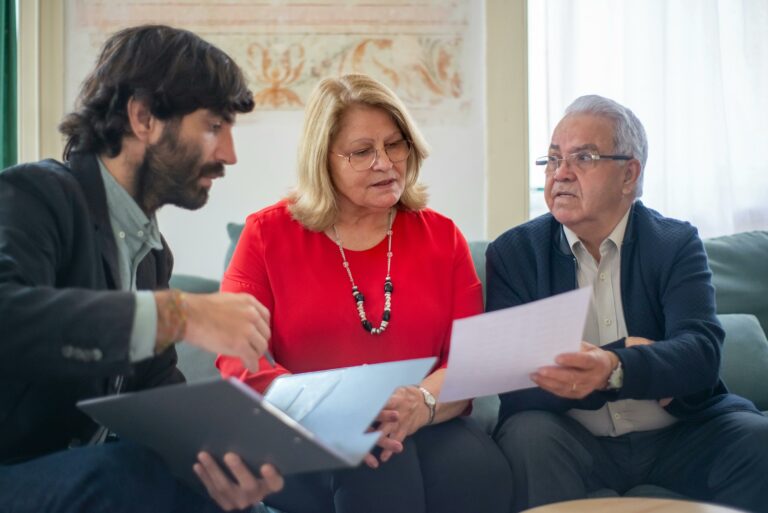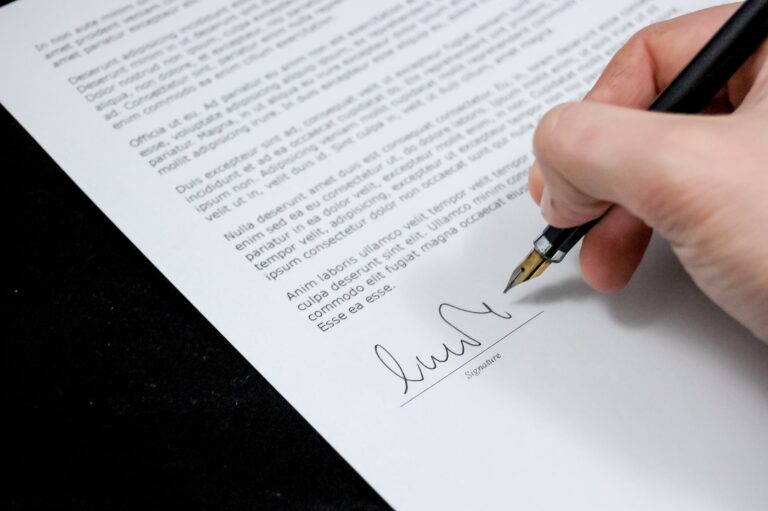The Importance of Incorporating Life Insurance into Your Estate Plan
Life insurance is a pivotal component of a comprehensive estate plan. Integrating life insurance policies into estate planning can provide financial security for your heirs and ensure that your estate is distributed according to your wishes. When used effectively, life insurance can solve a range of estate planning challenges, from providing immediate cash flow to beneficiaries to helping cover estate tax liabilities.
Incorporating life insurance into your estate plan requires careful consideration of the type of policy that best suits your needs, whether term life insurance for temporary coverage or whole life insurance for permanent protection. It’s essential to understand the insurance company’s role in managing these policies and ensuring that they align with your overall estate objectives.
How Can Life Insurance Be Used in Estate Planning?
Life insurance can play a crucial role in estate planning. It can provide a death benefit to cover immediate expenses after your passing, such as funeral costs and debts, thereby alleviating financial burdens on your heirs. Furthermore, life insurance proceeds can be used to pay estate taxes, ensuring that your beneficiaries receive their inheritance without liquidating other estate assets.
When selecting life insurance for estate planning purposes, it’s important to consider the different types of policies available, such as term insurance for short-term needs and permanent insurance for long-term planning. An insurance agent can be a valuable resource in this process, helping to determine the right policy type for your estate planning goals.
Choosing the Right Beneficiary for Your Life Insurance Policy
Designating the appropriate beneficiary is crucial in using life insurance for estate planning. The beneficiary should align with your overall estate plan, ensuring the death benefit supports your intended estate distribution. Reviewing and updating your beneficiary designations regularly is vital, especially after significant life events like marriage, divorce, or the birth of a child.
Heirs named as beneficiaries will receive the insurance death benefit directly, which can provide them with immediate financial support and help them manage any inheritance or estate inheritance they receive from your other assets.
The Role of Life Insurance Trusts in Estate Planning
Life insurance trusts, particularly irrevocable life insurance trusts (ILITs), play a significant role in estate planning. By placing a life insurance policy within a trust, you can exert greater control over how the death benefit is distributed among your beneficiaries. The trust owns the policy, removing it from your taxable estate and potentially reducing estate tax liabilities.
An irrevocable trust is especially beneficial since it ensures that the proceeds from the life insurance policy are used according to the terms you’ve set, such as funding a trust for a child with special needs or providing for a specific heir.
The Benefits of Irrevocable Life Insurance Trusts
An irrevocable life insurance trust (ILIT) offers several benefits in estate planning. Since the trust is irrevocable, it provides a layer of protection against creditors and legal judgments, ensuring that the life insurance payout is used solely for the benefit of your designated beneficiaries.
Setting up an ILIT requires careful planning and adherence to legal guidelines. The trustee you appoint will manage the trust and oversee the life insurance death benefit distribution according to your specified terms.
Estate Planning with Different Types of Life Insurance
Understanding the different types of life insurance is crucial in estate planning. Term life insurance offers coverage for a specified period and is often used for short-term estate planning needs, such as providing financial support to minor children. On the other hand, permanent life insurance policies, like whole life or universal life insurance, offer lifelong coverage and can build cash value over time, which can be an asset in your overall estate.
When considering life insurance in estate planning, it’s important to evaluate how the death benefit of a life insurance policy will impact your estate’s overall financial picture and the inheritance your heirs will receive.
Life Insurance and Federal Estate Tax Considerations
Life insurance can be a strategic tool in managing federal estate tax obligations. The proceeds from a life insurance policy are typically not subject to federal income tax. However, they can still be included in your gross estate for estate tax purposes, depending on the ownership of the policy.
To minimize estate tax impact, you might consider establishing an irrevocable life insurance trust, which removes the policy from your taxable estate. This strategy can be particularly effective in estates approaching or exceeding the federal estate tax exclusion limit.
How Life Insurance Can Help Pay Estate Taxes
One of the primary uses of life insurance in estate planning is to provide funds to pay estate taxes. This is especially relevant for larger estates that may face significant federal and state estate taxes. The death benefit from a life insurance policy can be used to cover these taxes, ensuring that your heirs do not have to liquidate other estate assets to meet tax obligations.
In planning for estate taxes, working with professionals, such as estate attorneys and tax advisors, is essential to ensure that your life insurance coverage aligns with your anticipated tax liabilities.
The Role of Life Insurance in Providing for Heirs and Beneficiaries
Life insurance can offer substantial financial support to your heirs and beneficiaries upon your passing. Whether providing for a spouse, children, or other dependents, life insurance can ensure that your loved ones are cared for financially. This is particularly important in cases where other estate assets are not readily liquid or if you wish to leave a specific inheritance to certain beneficiaries.
When selecting life insurance for this purpose, consider the needs of your heirs, their ability to manage a large sum of money and how the death benefit will complement other aspects of your estate plan.
Summary: Key Points to Remember in Life Insurance and Estate Planning
- Life Insurance as a Financial Tool: Understand the different types of life insurance and how they fit into your estate plan.
- Beneficiary Designations: Regularly review and update your beneficiary designations to align with your estate planning goals.
- Life Insurance Trusts: Consider using irrevocable life insurance trusts to control the distribution of your life insurance proceeds.
- Federal Estate Tax Planning: Utilize life insurance to address potential estate tax liabilities, especially in larger estates.
- Providing for Heirs: Choose the right life insurance policy to ensure that your heirs are financially supported according to your wishes.
In conclusion, life insurance plays a vital role in comprehensive estate planning. By carefully selecting the right type of policy, designating appropriate beneficiaries and considering the use of trusts, you can ensure that your estate plan effectively addresses your financial goals and provides for your loved ones after your passing.










